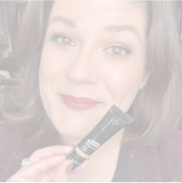You’re well into adulthood, you know your body like the back of your hand, and all of a sudden – it begins to change again. You knew the day would come, but did you really know what it meant? In this article, we will discuss some of the common signs of menopause, and how to help your skin succeed through this stage of your life.
Symptoms of Menopause:
- Inconsistent sleep / insomnia
- Chills and/or hot flashes
- Spotting of the period
- Decreased libido
- Slowed metabolism and weight gain
- Anxiety
- Dry skin
- Night sweats
- Headaches
Of course, not every woman will experience all of these symptoms. For some, menopause is a rather smooth transition. However, if you do begin to experience some of these symptoms, don’t stress. We’re here to help you understand why.
Menopause and Skin:
Estrogen is the hormone responsible for regulating the female body. Its primary function is for the growth of the female egg and the regulation of the female reproductive system overall. This includes regulating the uterus, and the development of breast tissue, for example.
But what does it have to do with the skin?
Well, estrogen is also responsible for creating collagen and retaining hydration of the skin. Collagen is the natural protein in your body that is responsible (in part) for skin elasticity. For that reason, loss of collagen production can be a primary reason for fine lines, wrinkles, and the weakening of the skin overall.
In the first year of menopause, women lose up to 30% of collagen. Some healthcare professionals will refer to this as estrogen-deficient skin or EDS. Of course, it’s a completely natural occurrence, so don’t fret. To combat the changes your skin experiences during menopause, follow this simple skincare routine.
Your Guide:
- Cleanse: Cleansing your skin twice a day with a gentle cleanser will help wash away unwanted dirt, and bacteria, while also giving your face a soft, renewed pallet.
- Moisturize: Because menopause can cause dry skin, moisturizing frequently is critical. Likewise, moisturizing will help boost skin elasticity and hydration retention. For a moisturizer that is specifically built for mature skin, try this Apple Cream by Fièra Cosmetics.
- Sunscreen: Sun damage knows no age. You can get sun damage at any point in your life, which is why it is extremely important to continue wearing sunscreen as you mature. Even if you haven’t experienced sun damage in the past, or cannot see the results of sun damage, you don’t have to see it to believe it. It can still happen. Wear SPF 30 or higher on your face every day you go outside.
- Retinol: Retinols are known to be stronger skincare products, which is why we only recommend using them at nighttime. They will make your skin more susceptible to sun damage, so using them overnight then washing again in the morning is the way to go. Though retinoids are typically marketed to a younger audience, they are safe to use into adulthood. Contact your doctor for retinol recommendations specifically targeted toward your skin type.
- Hormone replacement therapy: This is another solution to menopausal effects that you should discuss with your doctor. While many options are safe and minimally invasive, costs will vary, and ensuring the compatibility with your other health conditions is imperative.
Other things you can do:
Maintaining a balanced diet, and aiming for 30 minutes of exercise a day are two great ways to help your body during this time. Likewise, getting ample sleep and avoiding common triggers for the skin, such as processed foods, refined sugars, and alcohol, is a good way to avoid breakouts. (If you are prescribed an extra testosterone hormone, you can experience breakouts during menopause.)
The bottom line: don’t feel embarrassed. This is all completely normal. With just a few adjustments to your skincare regime, we’re ready to help you regain confidence in your skin.
Visit our blog for more tips and tricks about mature skincare.

